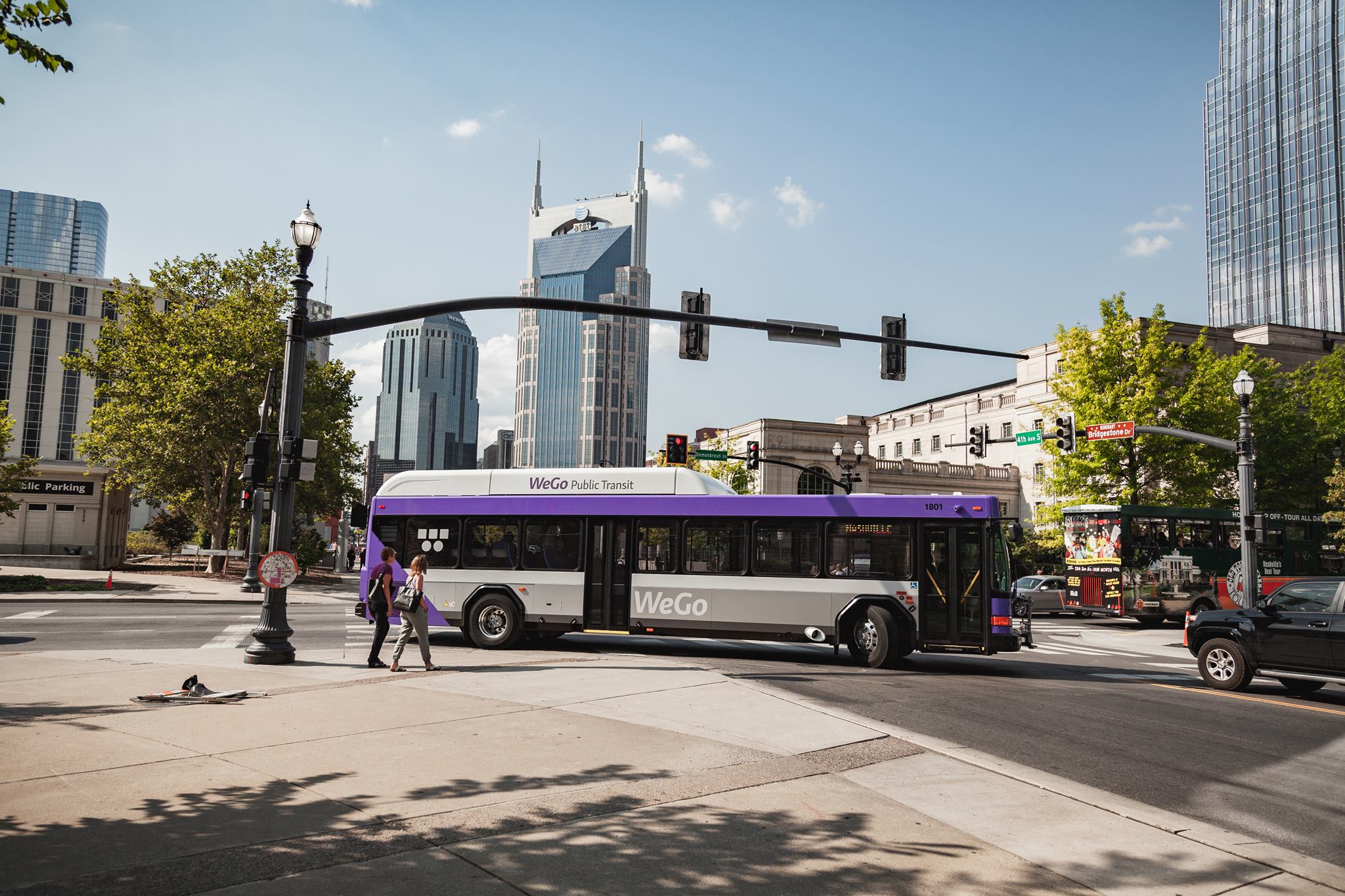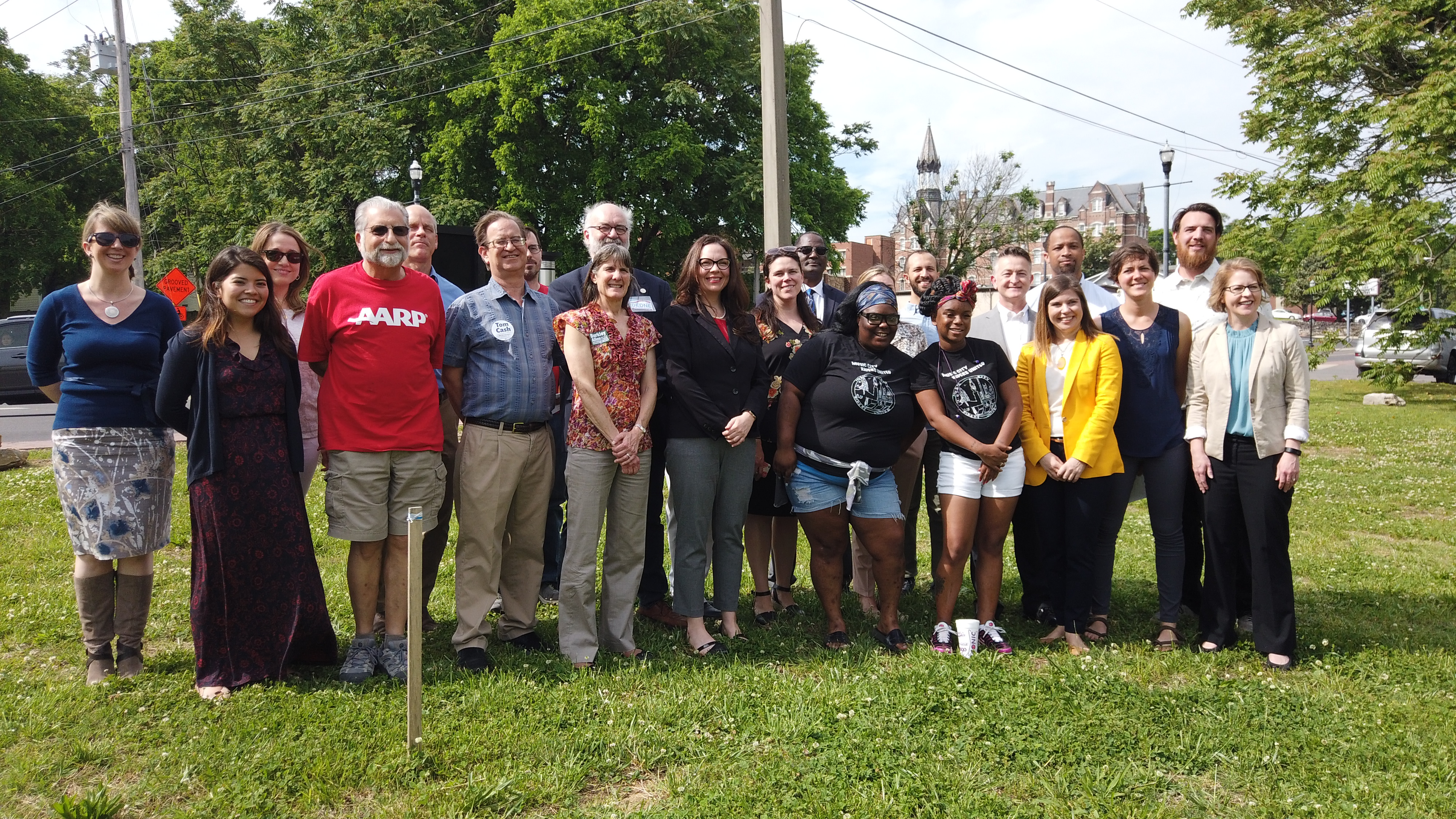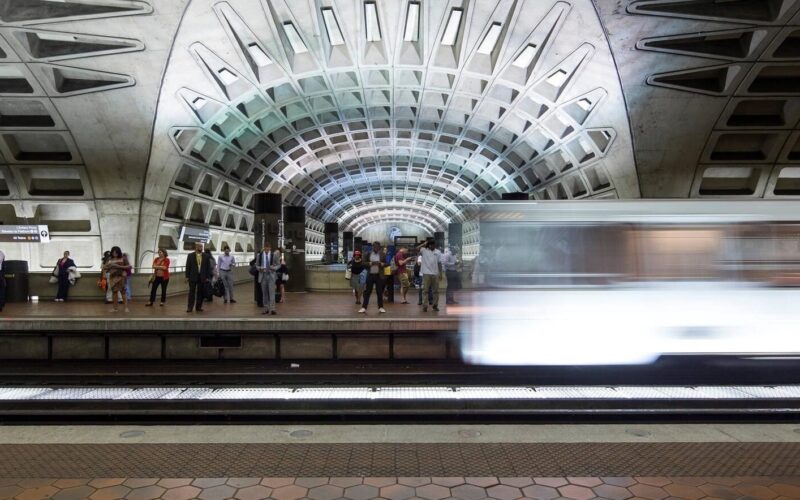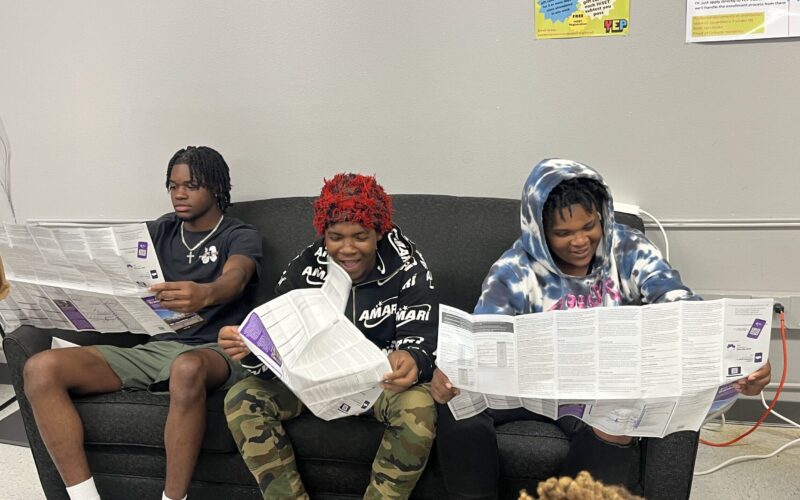
In 2017, things were looking bright for transit in Nashville. With newly-granted authority to levy a local sales tax and an immensely popular mayor leading the campaign for a $5.4 billion package of rail and bus upgrades, the rapidly growing city seemed ready to embrace transit as central to its future.
Then in March of 2018, Mayor Megan Barry was forced to resign after admitting to an affair with a member of her security detail. Two months later, voters sided against her Let’s Move Nashville transportation package by a 64% to 34% margin – a stunning defeat for a plan that consistently polled well and enjoyed support from the Chamber of Commerce and dozens of business and civic organizations.
The measure received majority support in just five of Nashville’s 35 council districts, and in a tell-tale sign that the plan was fundamentally flawed, it was resoundingly rejected by Black and working-class Nashvillians who form the core of the city’s transit ridership. Let’s Move Nashville was not a transit plan that spoke to transit riders.
While the referendum results stung some advocates, transit supporters regrouped, determined to grapple with what went wrong and learn from past mistakes. A year after the vote, a new coalition is reviving the transit conversation in Nashville.
In April, 13 advocacy groups released the Nashville Community Transportation Platform, a collaborative, consensus-driven effort that seeks to raise awareness of how Nashville’s transportation system can work better for residents. The platform has identified six key transportation priorities for the city to tackle, including better bus service, pedestrian safety improvements, and securing the funds to address these needs. And on May 1st, platform members joined the Chamber of Commerce and other business groups to form a broader coalition called Connect Mid TN.
Many members of Connect Mid TN also signed on to the original Let’s Move Nashville plan, but the new coalition is broader. With perspective from groups like the grassroots advocacy organization Music City Riders United, the coalition is confronting the shortcomings of the Let’s Move Nashville plan head-on.
One of those shortcomings was the opaque process surrounding the development of Let’s Move Nashville. People outside the mayor’s circle of advisors and consultants had to “kick down the door” to provide ideas and feedback, said Council Member Freddie O’Connell.
It was only after the full plan was released to the public that the city decided to host a number of “community engagement” sessions. By failing to reach out at an earlier stage of the process, the administration alienated advocates who would otherwise be receptive to transit investment.
Barry’s team also failed to link Let’s Move Nashville to past transit planning efforts. “What’s interesting is that Nashville recently underwent a successful community planning effort, which culminated in 2016’s nMotion transportation plan,” said O’Connell. But the project list for Let’s Move Nashville seemed to emerge primarily from the coterie of planners and consultants surrounding Mayor Barry. The plan was associated so strongly with Barry that after she was swept from office, public support for the transit package also faded, and other elected leaders have been reluctant to pick up the mantle.
Projects in the Let’s Move Nashville package tended to be technically sound. But in a city where the entire transit system consists of bus service, the plan skimped on improvements that matter most to current transit riders. With 80% of the funds earmarked for building five light rail corridors and a tunnel through downtown, a relatively small percentage was left over for bus and pedestrian improvements.
This formula raised questions about who was supposed to benefit from the $5.4 billion. Let’s Move Nashville failed to garner the support of a single housing advocacy group, largely because of fears that development around light rail corridors would intensify gentrification.
Music City Riders was one of the groups that didn’t endorse Let’s Move Nashville. “We felt like it was more of a development plan that was using transit as opposed to a transit plan that was dedicated to prioritizing people who are transit dependent,” said Jack Willey, the organization’s interim co-coordinator. Housing pressures have displaced many people of color to the suburbs surrounding Nashville, and Let’s Move Nashville failed to address their mobility needs. “Any time we would bring it up we felt dismissed,” said Willey.
Music City Riders is a founding member of Connect Mid TN, which is taking a different approach to building political support for transit. Rather than angling for a specific set of projects, the coalition is working to identify the transportation obstacles Nashvillians face, and put pressure on city leaders to deliver solutions. “We hope to make the process more inclusive from the beginning, and ultimately arrive at something that people really feel like is for Nashvillians,” explains Nora Kern, Executive Director of Walk Bike Nashville.
The coalition is still figuring out how housing and transit advocates can best work together. “What we have before us is building out relationships, seeking out new voices and engaging in tough conversations,” said Kern.
But Willey says there’s now a shared understanding that transportation advocacy must strive to improve access for residents who are struggling in an increasingly unaffordable city. Council Member O’Connell agrees. “Our mobility crisis is on par with the housing crisis, and it’s important that we don’t separate the two,” he said.
Kern thinks that grounding advocacy in the needs of people who already ride transit will help. Improvements like additional bus service, more bus shelters and crosswalks, dedicated bus lanes, and expanded transit signal priority should be high priorities. “Instead of making the discussion about future riders, which sounds like gentrification, this time around we need to focus on improving the service for people that are currently riding,” she said.

Coalition members at the May 1st launch of Connect Mid TN.
Transit riders face an immediate threat because Nashville’s transit agency, WeGo, recently announced that it’s facing a budget shortfall of $8.7 million this year. WeGo plans to raise fares and slash service unless Mayor David Briley and the City Council supply more funds through the city budget.
This development has revived interest in establishing a dedicated funding source for transit. But O’Connell is skeptical that there will be an appetite anytime soon for a dramatic increase in transit investment among the city’s elected leadership. Briley – whose support for transit is lukewarm at best – is the frontrunner in the August mayoral election, and two top challengers have mixed records on the subject. “I do wonder whether the failure of the referendum cast a five-year shadow over our transportation progress,” O’Connell said.
The coalition plans to make transit and transportation a top-tier issue in the August election by hosting a mayoral forum and putting together a voter guide.
Kern and O’Connell stress that if city government fails to embrace transit as an urgent priority, it will come at the city’s peril. “Our transportation problems certainly haven’t gone away since the referendum,” said Kern. “Traffic is getting worse, 40,000 additional jobs are coming downtown in the next five years, and yet 80% of people drive alone to work. Our transit system just isn’t serving people effectively.”
While many questions about Nashville’s transit strategy remain, Willey is certain about one thing: “Advocacy organizations led by bus riders should be at the center of any conversations about transit expansion in Nashville.”
 On the Brink: Will WMATA’s Progress Be Erased by 2024?
On the Brink: Will WMATA’s Progress Be Erased by 2024?
The experience of being a WMATA rider has substantially improved over the last 18 months, thanks to changes the agency has made like adding off-peak service and simplifying fares. Things are about to get even better with the launch of all-door boarding later this fall, overnight bus service on some lines starting in December, and an ambitious plan to redesign the Metrobus network. But all of this could go away by July 1, 2024.
Read More Winning Free Fares for Youth in New Orleans
Winning Free Fares for Youth in New Orleans
Most transit agencies rely on fare revenue to fund operations, meaning many are forced into the position of needing to collect fares from the people who can least afford it. To change this paradigm, advocates across the country are fighting for - and winning - programs that allow agencies to zero out fares for youth, removing one of the largest barriers to youth ridership.
Read More